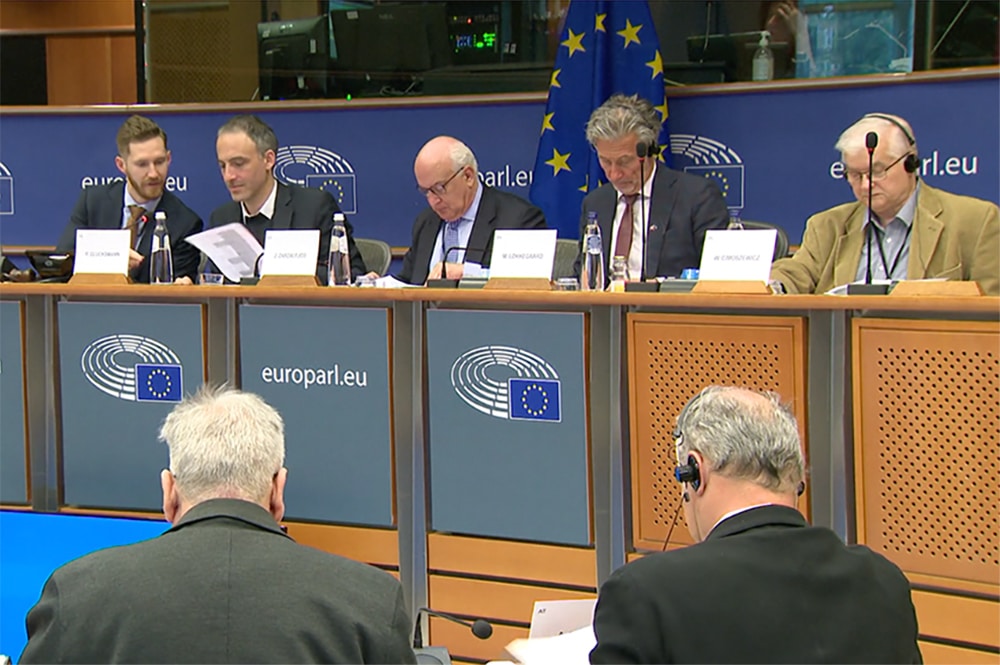The new report on foreign interference, is illustrated by numerous examples such as EU political elites defending Gazprom’s interests and Hungary’s vulnerability to Russian intelligence activities
The EU needs a coordinated strategy against foreign interference and information manipulation (FIMI), including measures to enforce better existing provisions to fight it, say MEPs in a report adopted on Wednesday. They add that adequate funding should be provided for capacity-building activities to tackle disinformation and uphold democratic processes.
Russia’s war of aggression against Ukraine clearly made the link even more evident between attempts of FIMI and threats to the EU and its immediate neighbourhood, Western Balkans and Eastern Partnership countries, as well as global security and stability, warn MEPs on the Special Committee on Foreign interference (ING2).
MEPs are requesting that the Commission develop an effective Defence of Democracy Package, taking into account the Conference on the Future of Europe final proposals., MEPs suggest that, when dealing with foreign influence efforts, the EU should consider a more effective “risk-based approach” that bears in mind if a risk country, such as Russia, China, or Iran has been involved.
Critical infrastructure and interference during electoral processes
The report names many examples of foreign interference such as political elites advancing Gazprom’s agenda in Germany; susceptibility to Russian intelligence activities in Hungary; and targeting LGBTIQ+ community with disinformation campaigns in Slovakia, Hungary and Poland.
Concerned about the EU’s dependence on foreign actors and foreign technologies in critical infrastructures and supply chains, MEPs call on the Council and the Commission to exclude the use of equipment and software from manufacturers from high-risk countries, particularly China and Russia, such as TikTok, ByteDance, Huawei, ZTE, Kaspersky, NtechLab or Nuctech.
The report urges the Commission to enable donations to be effectively traced to counter prohibited financial transactions from non-EU countries entering into the EU’s political system and calls on the member states to urgently address the issue of donations from third countries to national political parties and close existing loopholes in their legislation.
More cooperation within the EU and with like-minded partners
To foster operational exchange between national authorities and EU institutions and agencies, the report calls for a specialised EU “knowledge hub” to deal with threat intelligence.
Stressing that increased interference and information manipulation is expected in the run-up to the 2024 European elections, MEPs suggest establishing a Rapid Alert System for members of European and national parliaments to counter online disinformation and prevent sharing.
Finally, MEPs call for closer cooperation with like-minded partners to counter FIMI, and to increase cooperation on strategic communication to counter manipulated narratives in the EU neighbourhood and the Global South.
The report was adopted by 27 votes in favour, 1 against and 1 abstentions.
Quote
Rapporteur Sandra Kalniete (EPP, LV) said: “Foreign interference in democratic processes represents a growing threat to the security of EU member states and the EU, particularly against the backdrop of rapid technological development and Russia’s ongoing war in Ukraine. Therefore, we must act urgently in adopting the INGE2 report and implement the INGE1 report more quickly. Significant and lasting investments must be made to build our democratic resilience, drawing on the experience of our partners like Ukraine and Taiwan.”
Next steps
The report will now be submitted to a vote in the Parliament as a whole at the May II plenary session.
As a response to the alleged attempts by foreign countries, including Qatar and Morocco, to influence MEPs, the special committee will prepare a separate report identifying the flaws in the European Parliament’s rules on transparency, ethics, integrity and corruption and make proposals for reforms to effectively fight corruption. The vote in the committee will be on 1 June.









